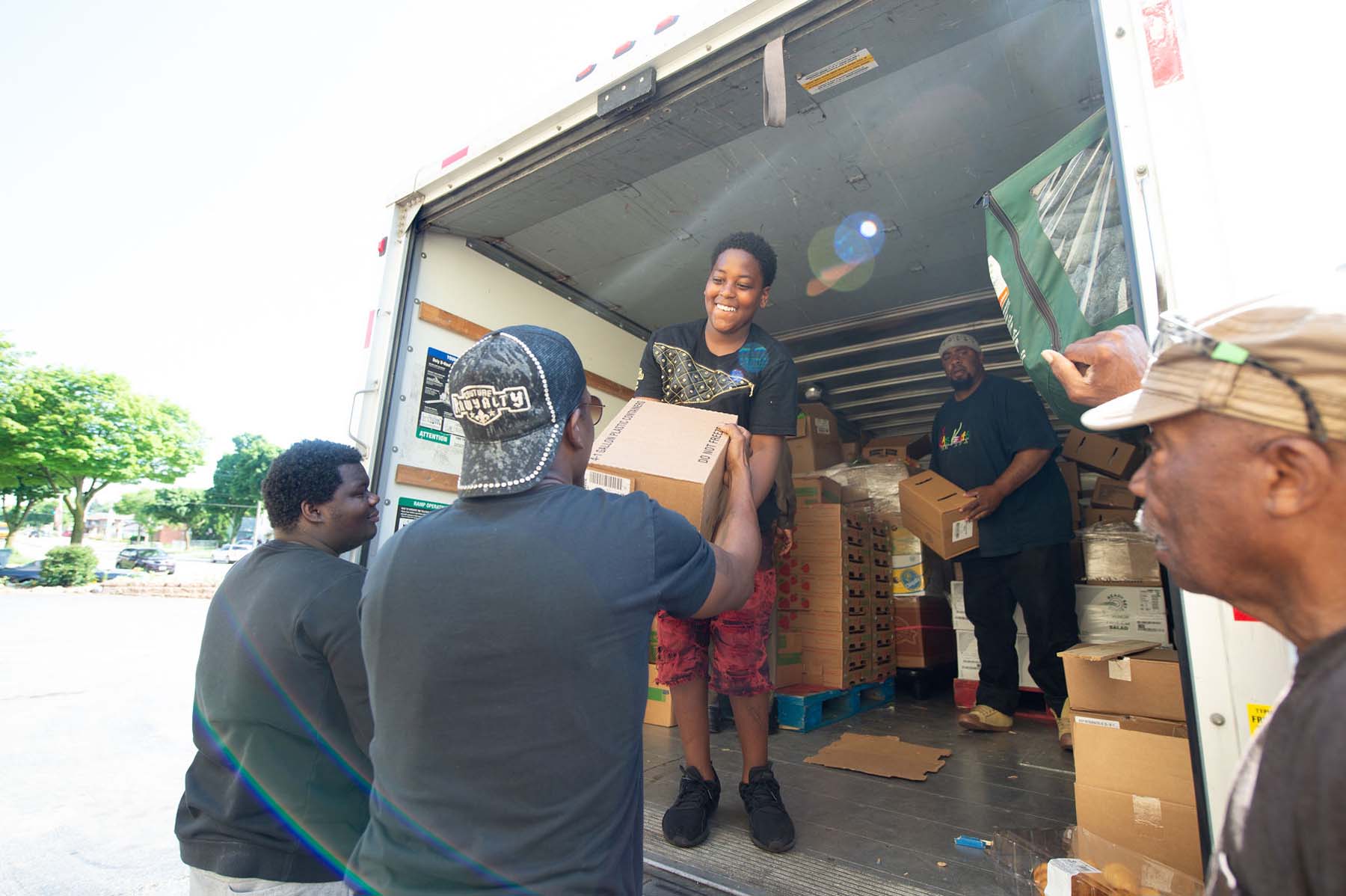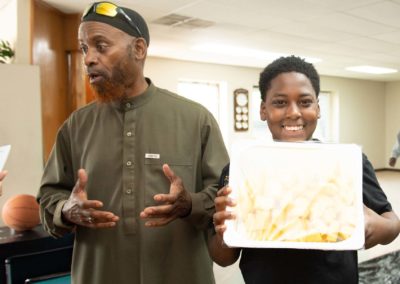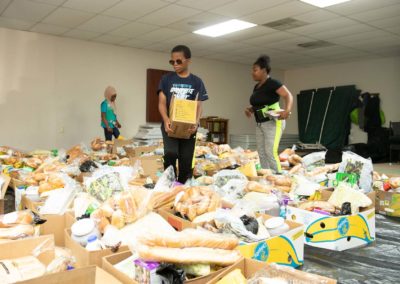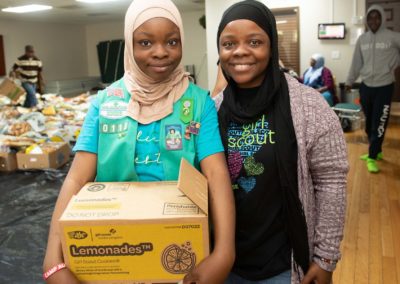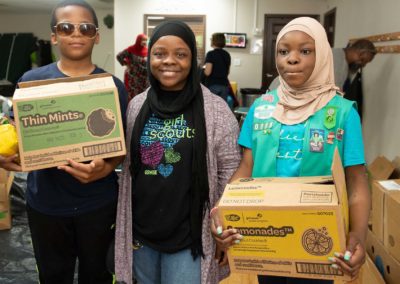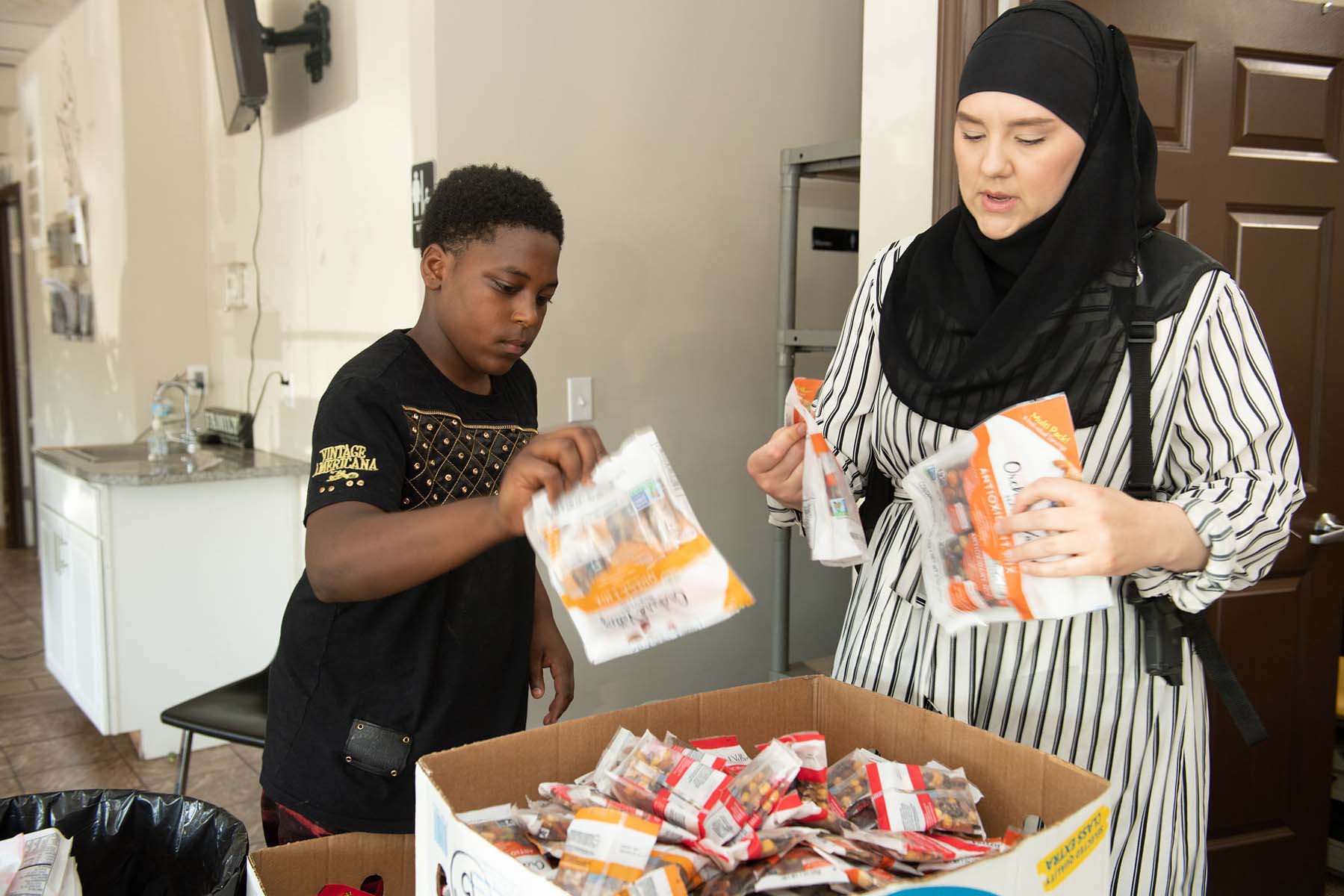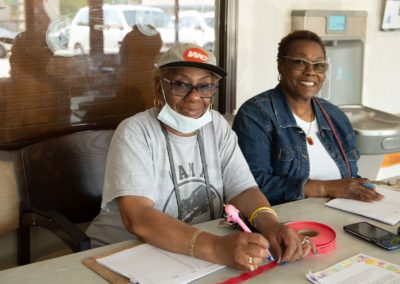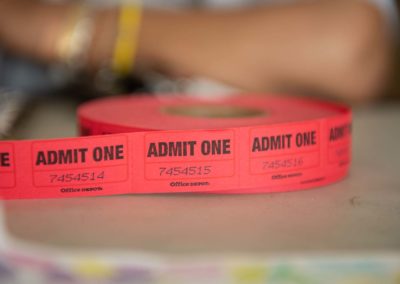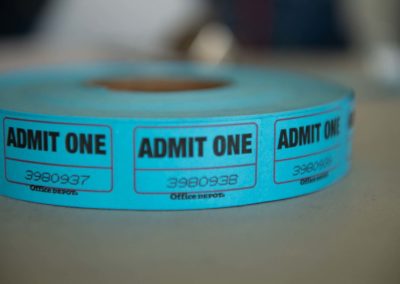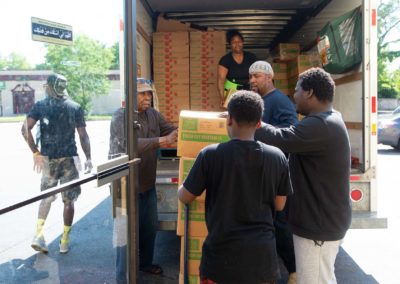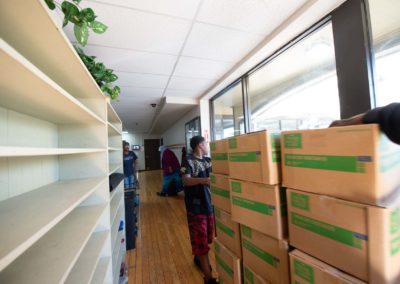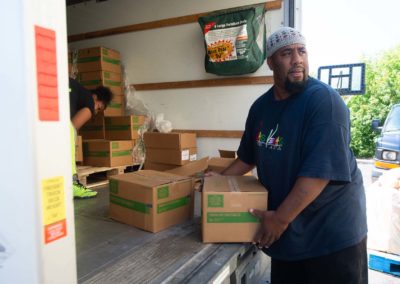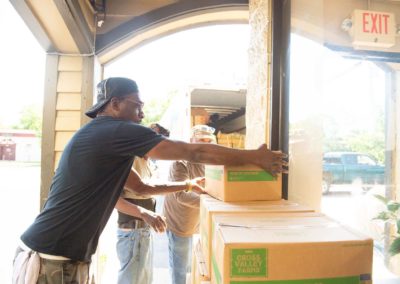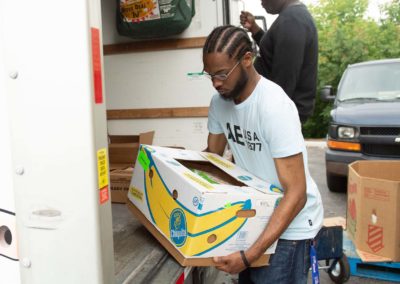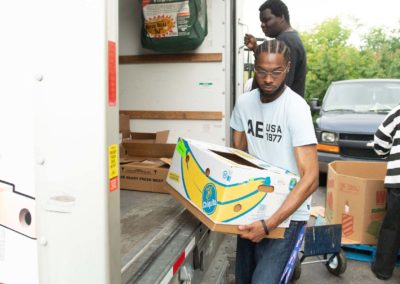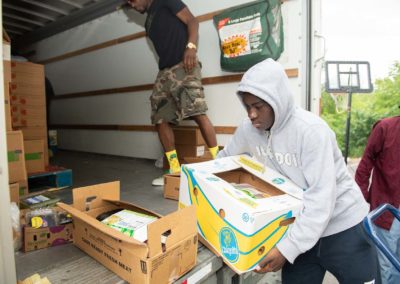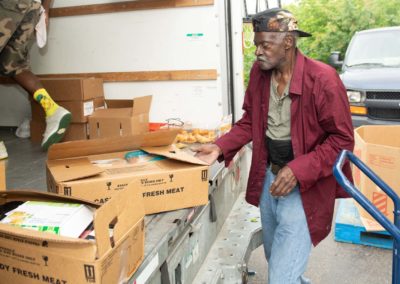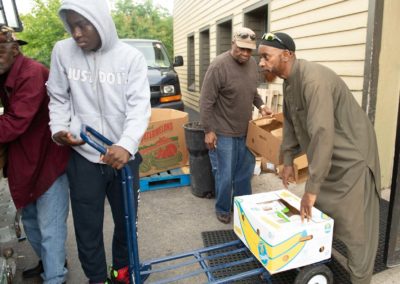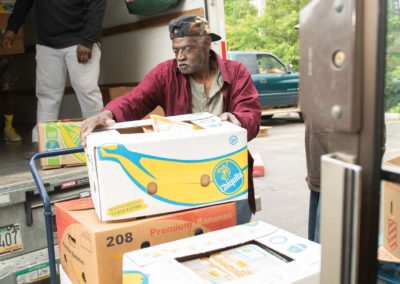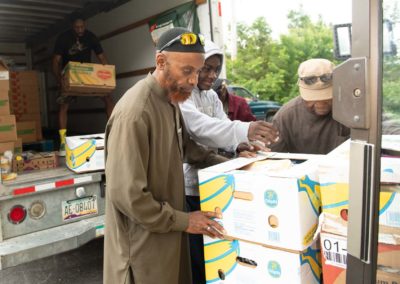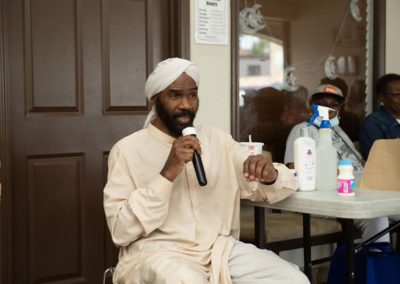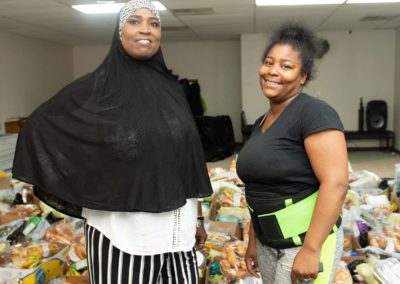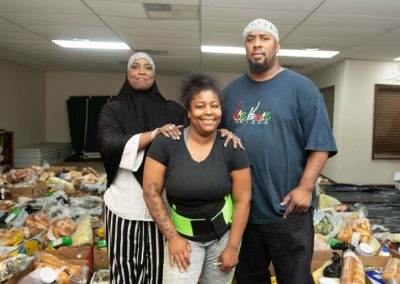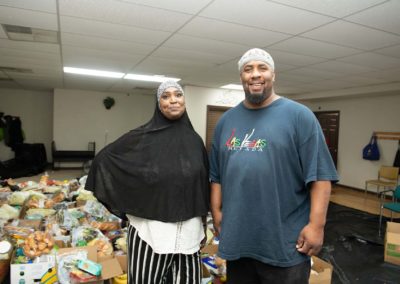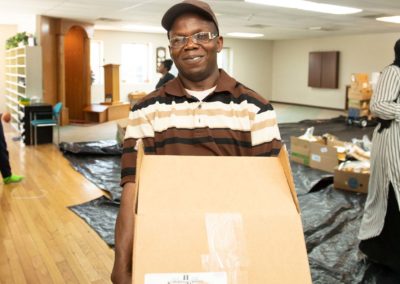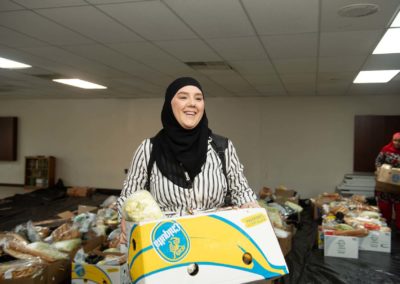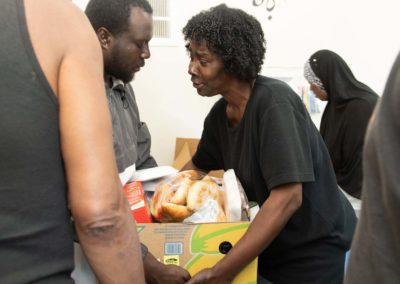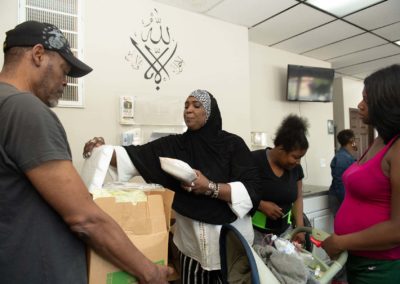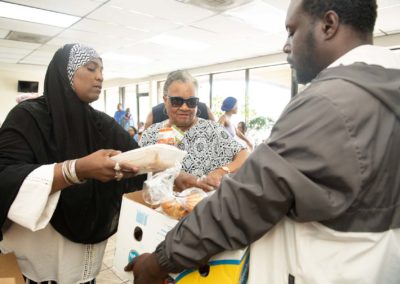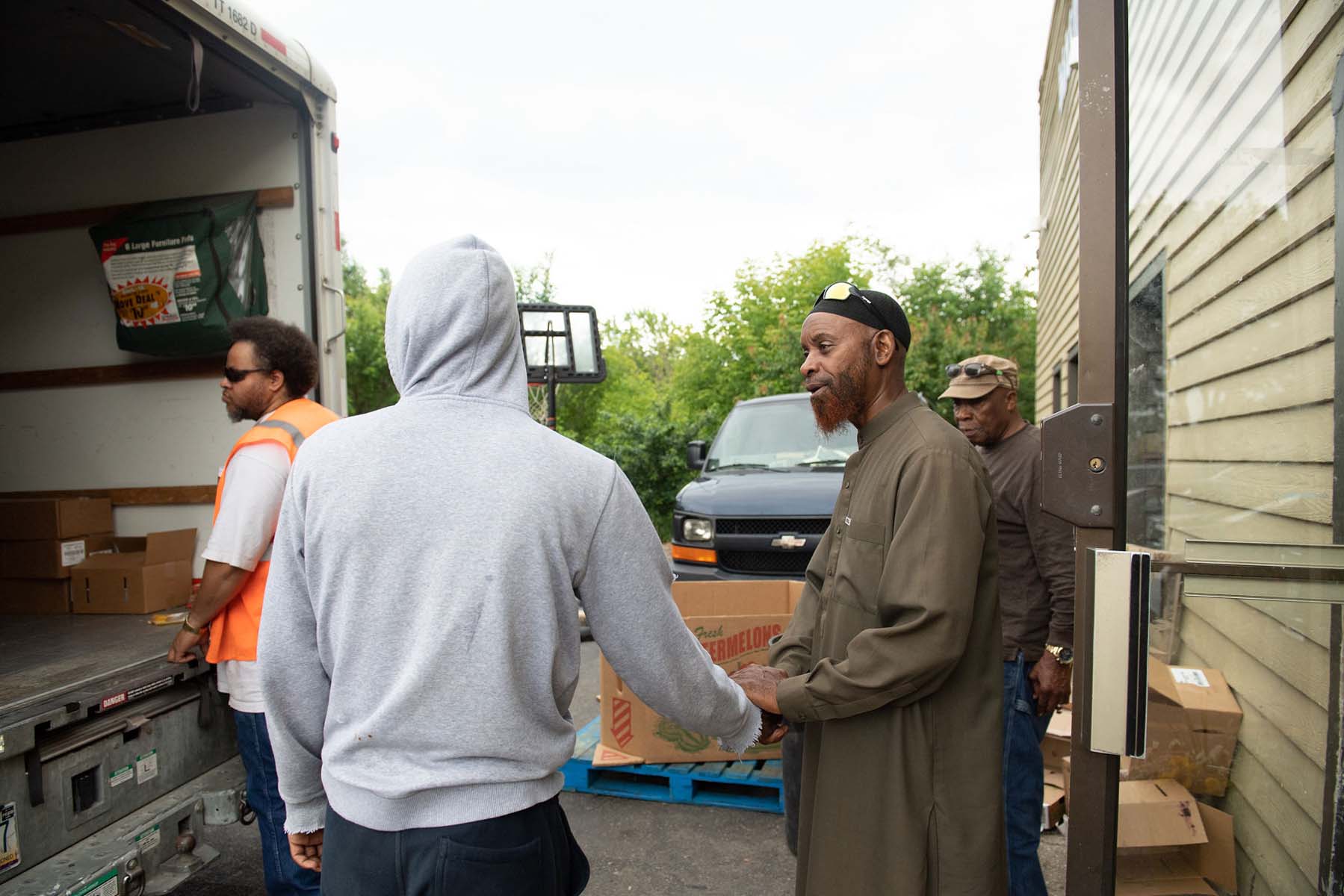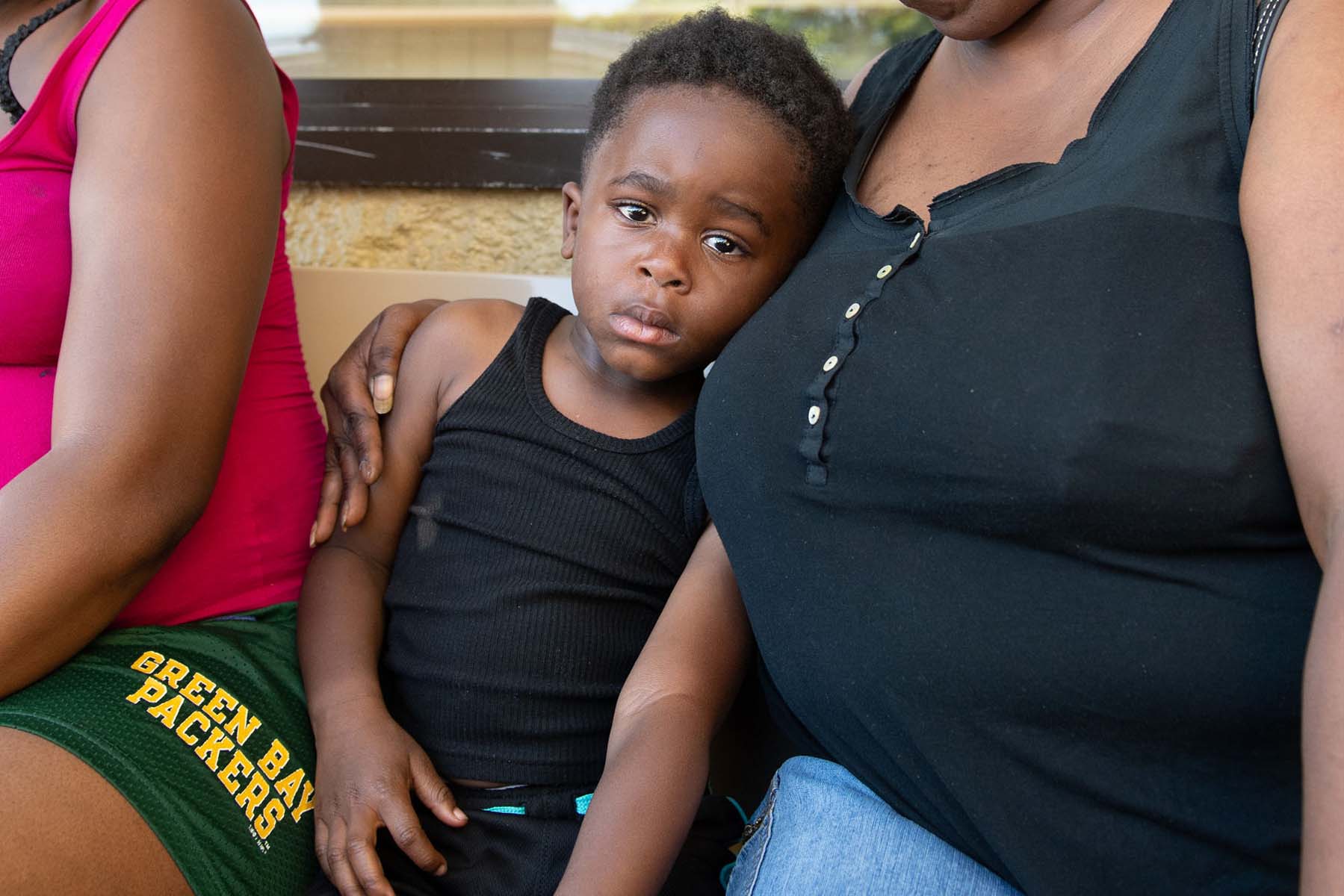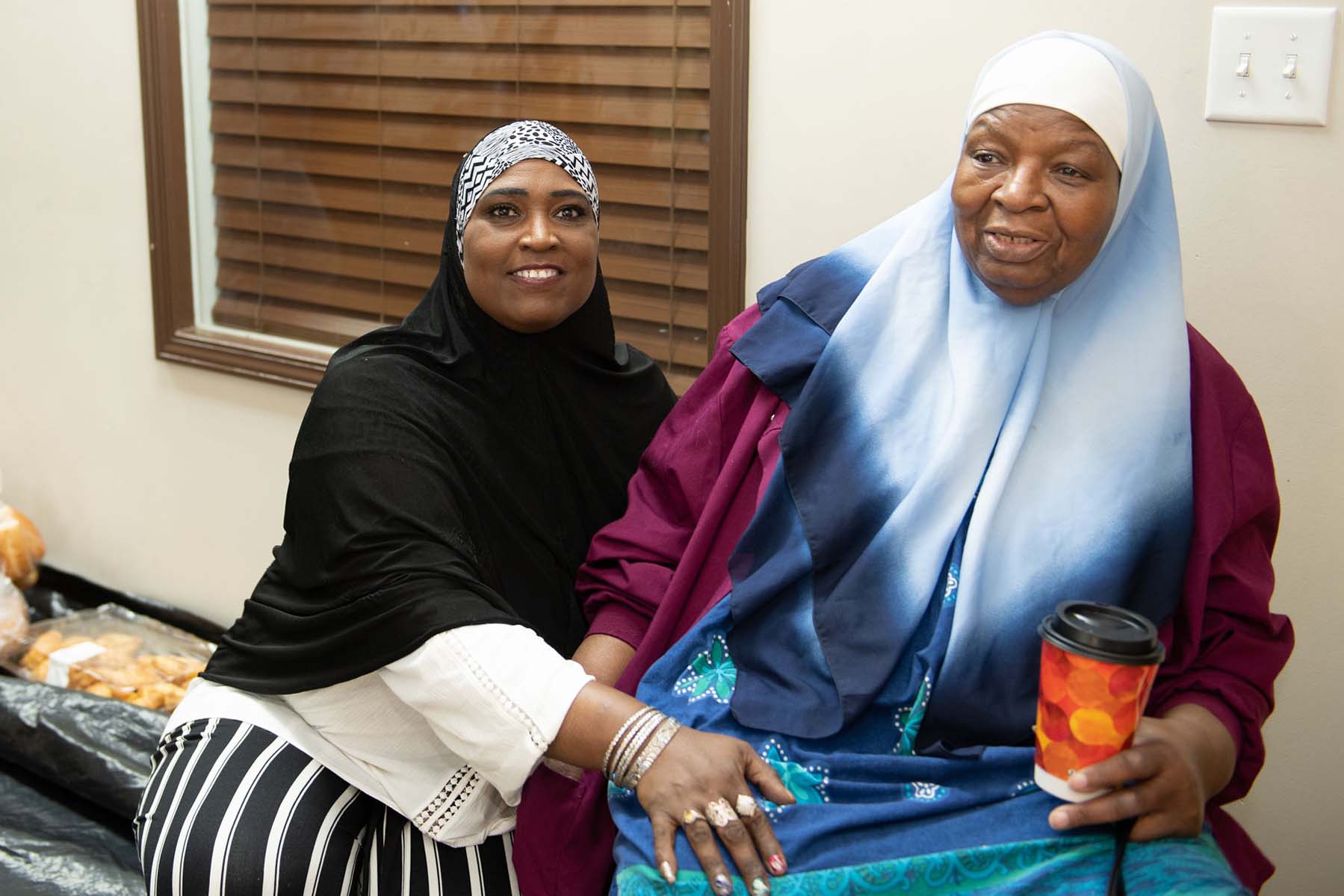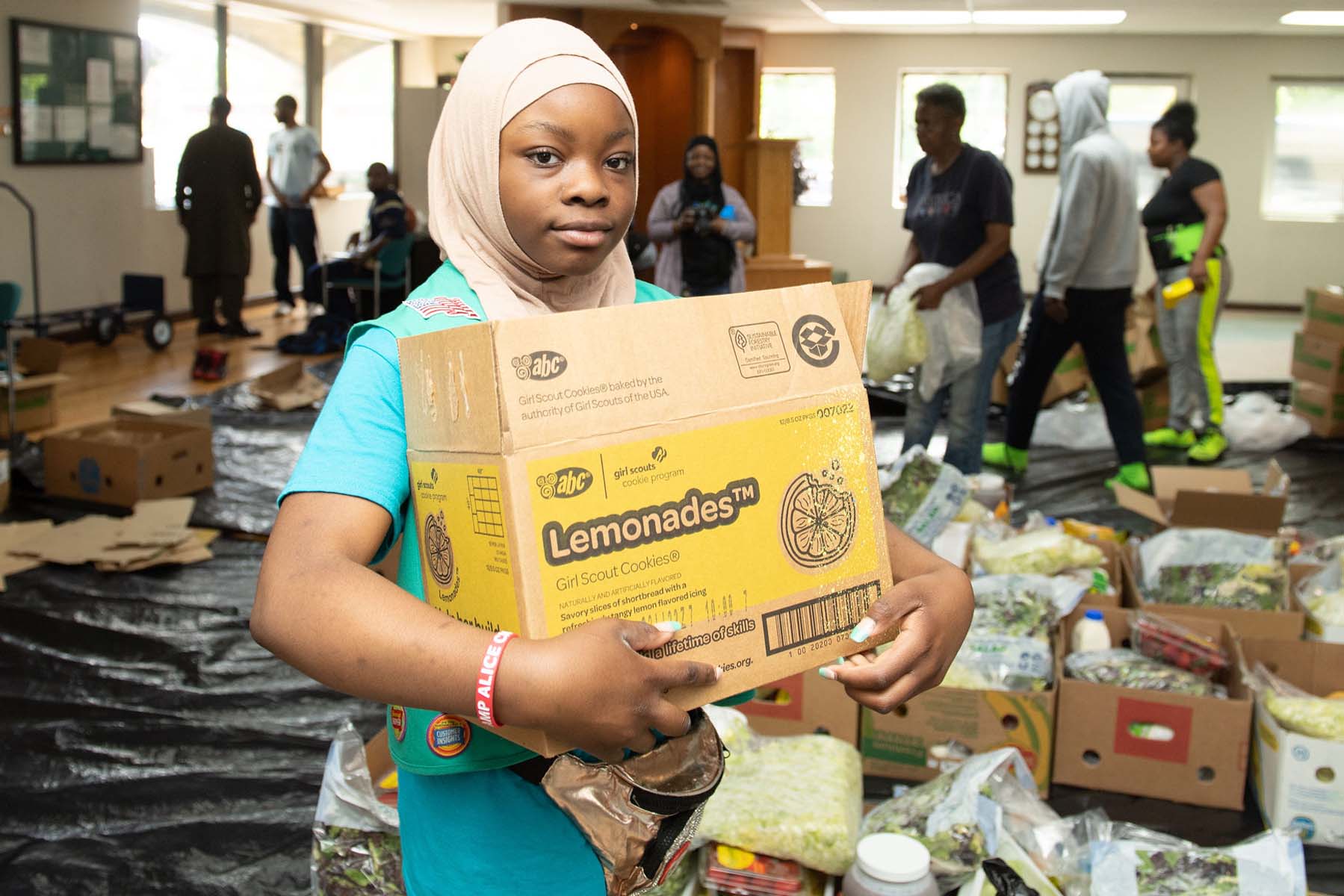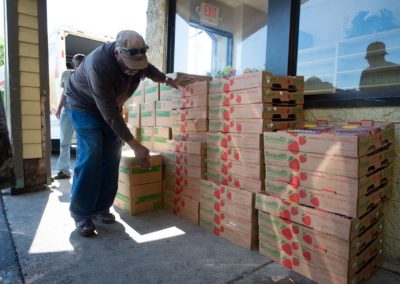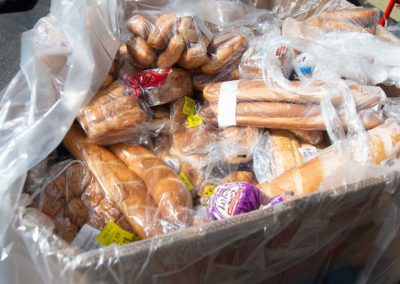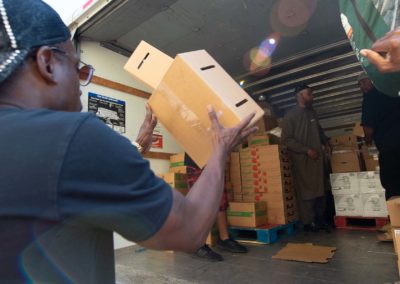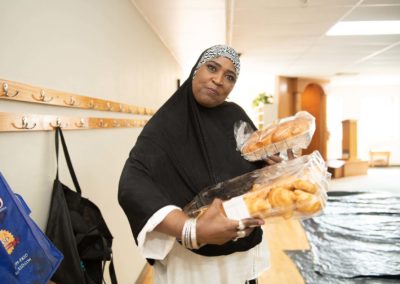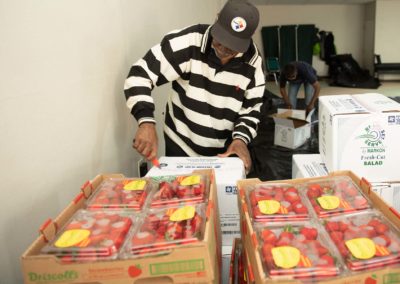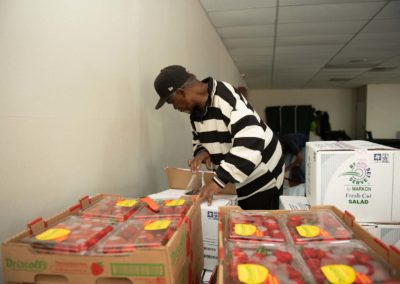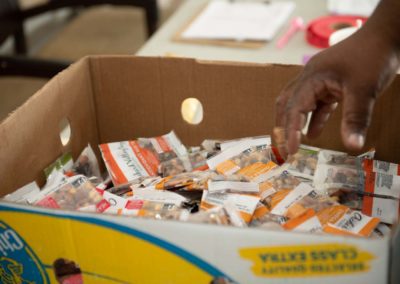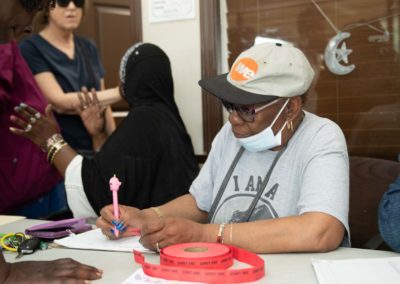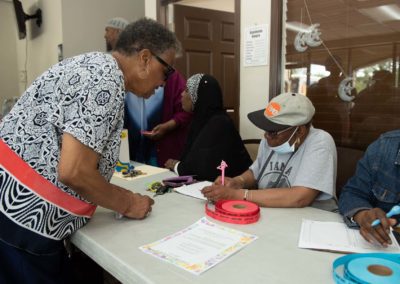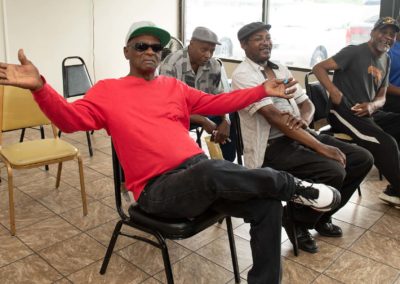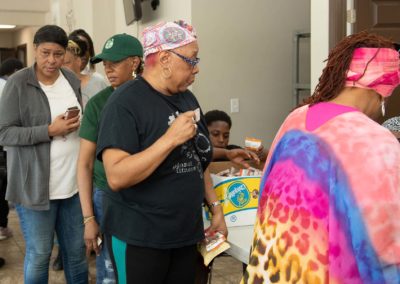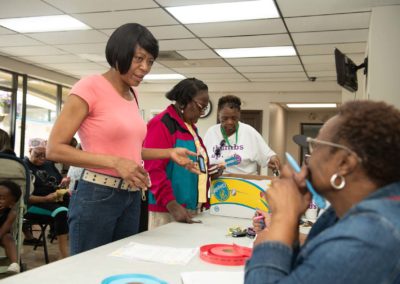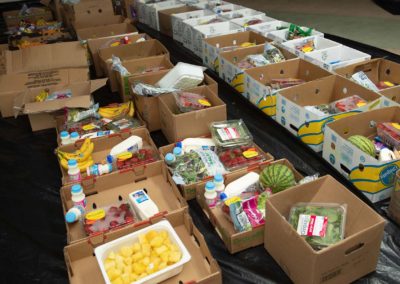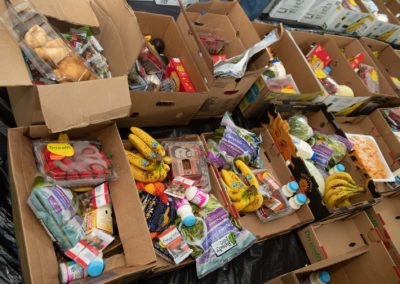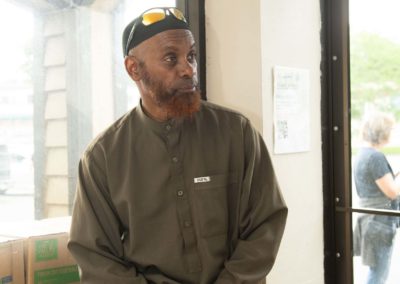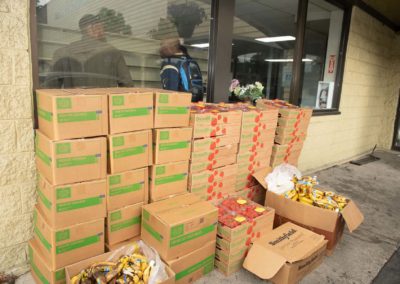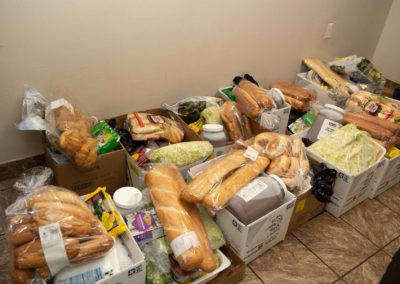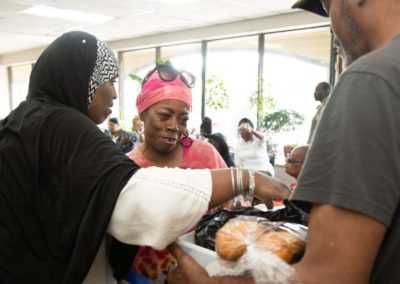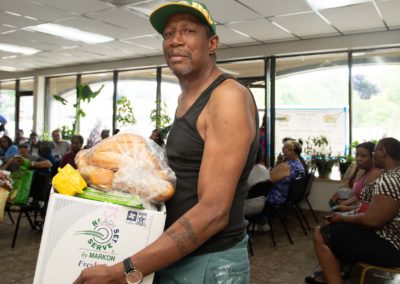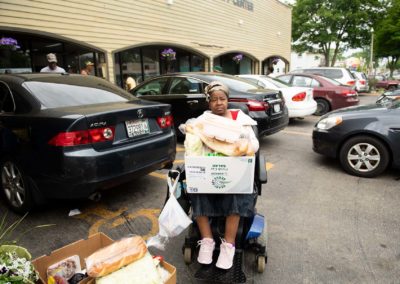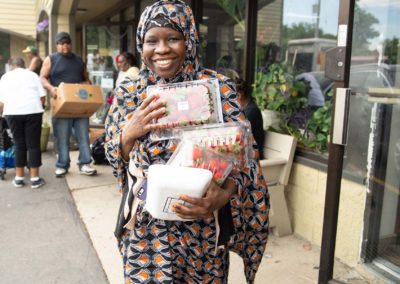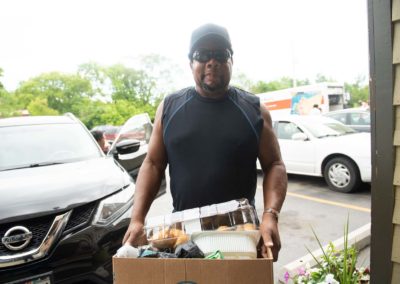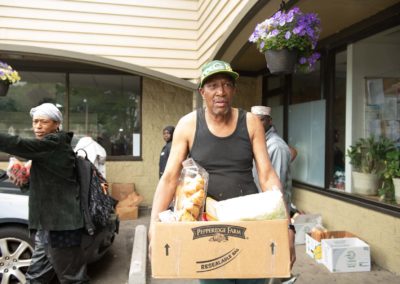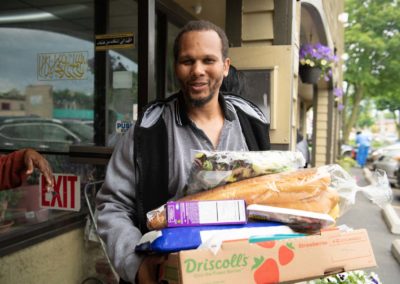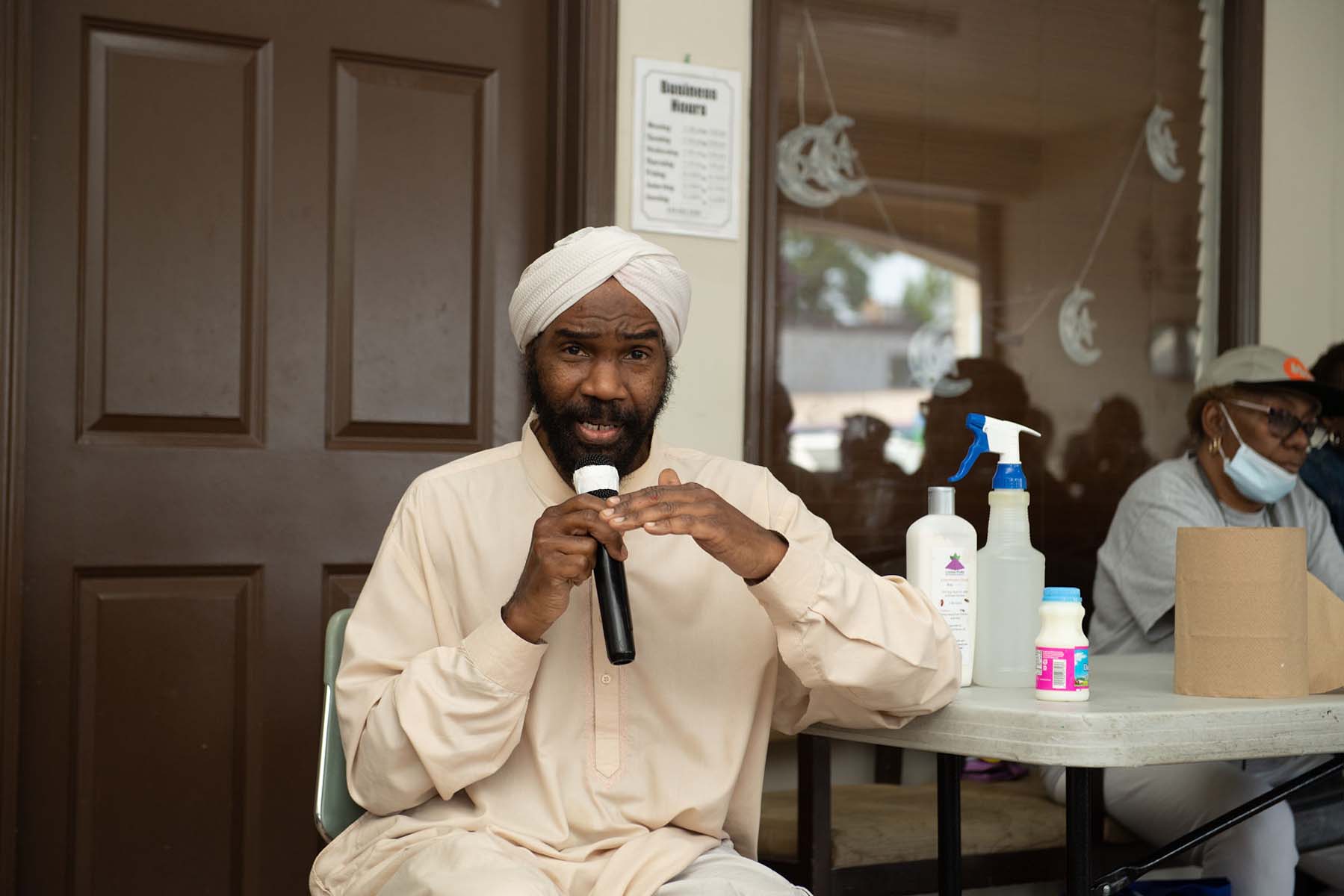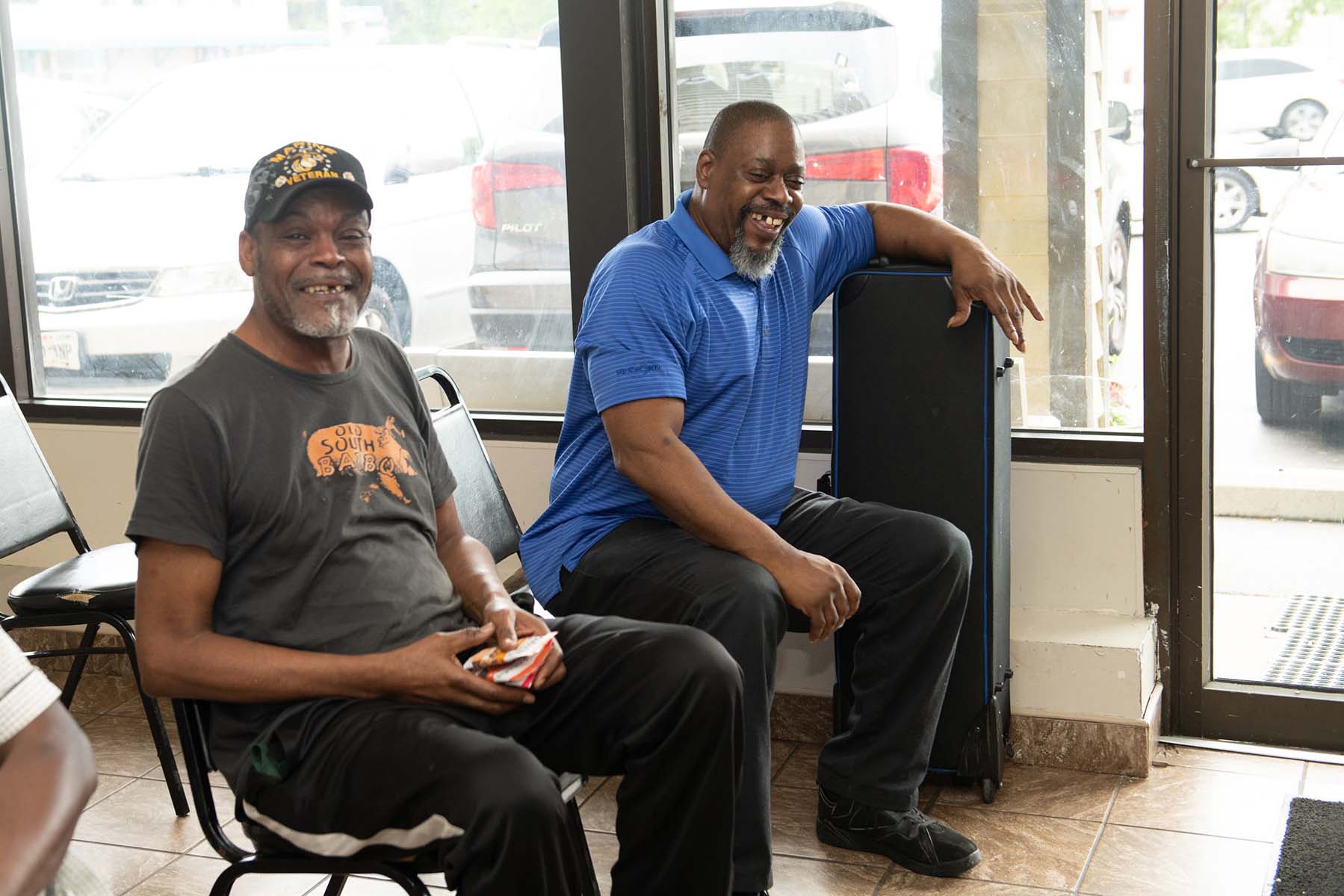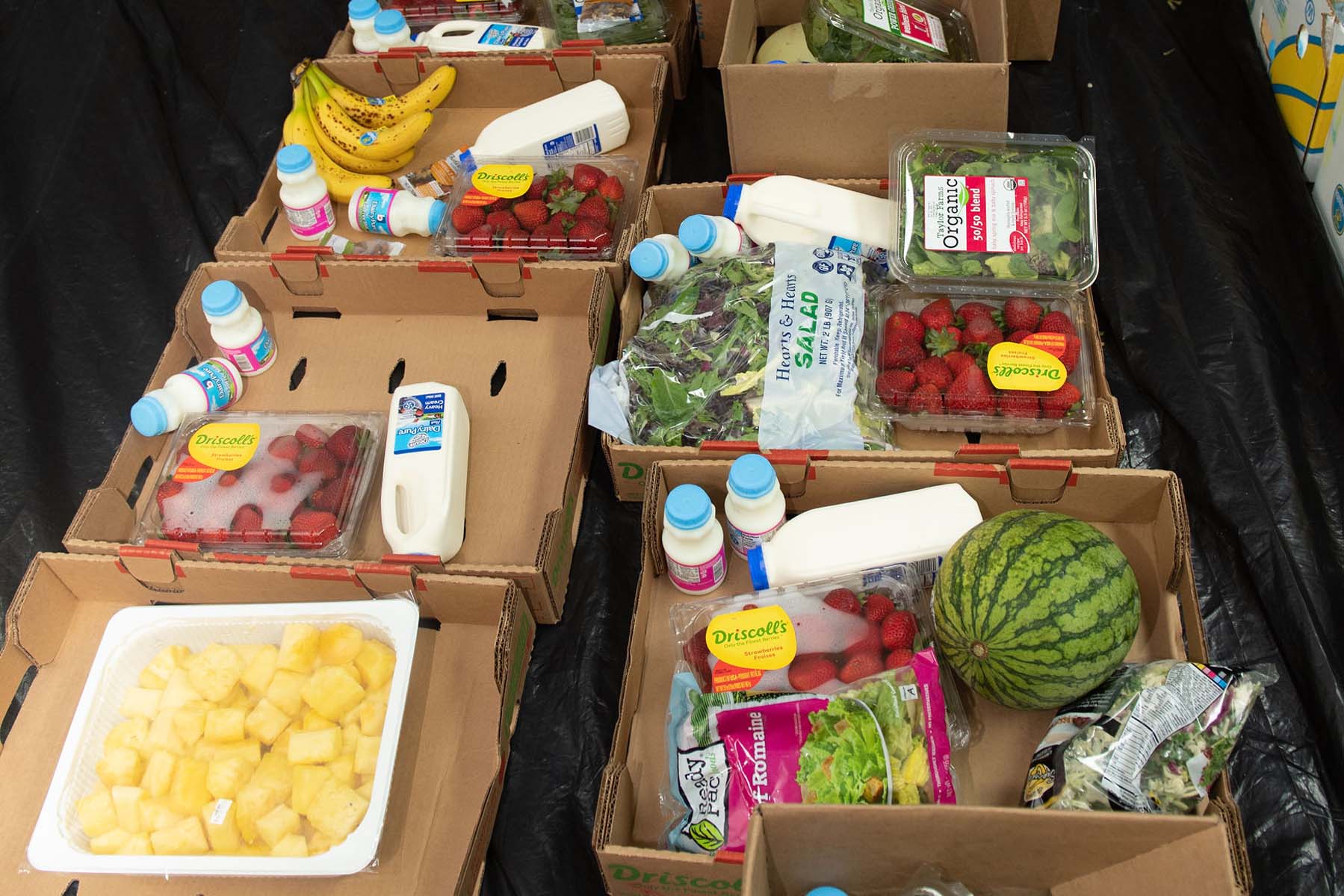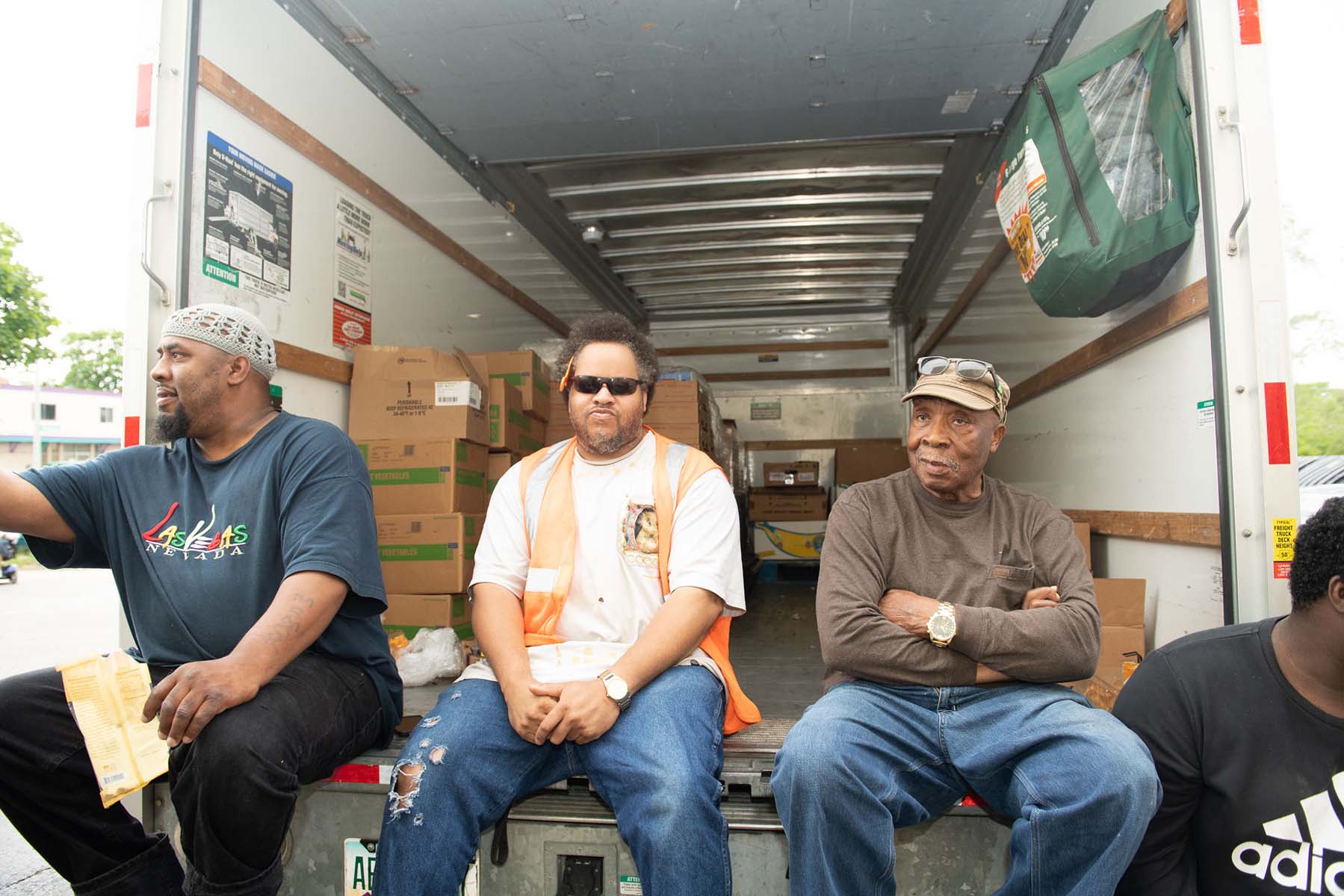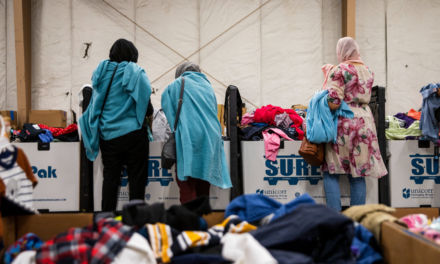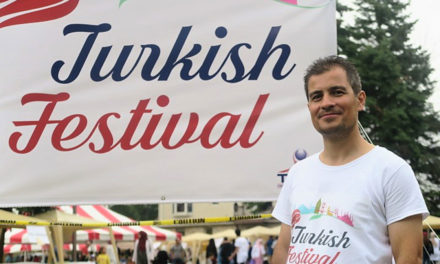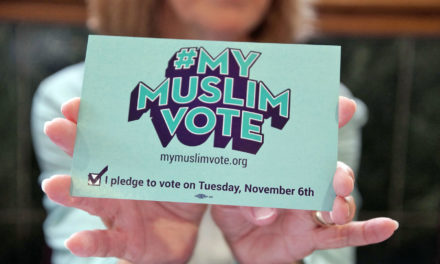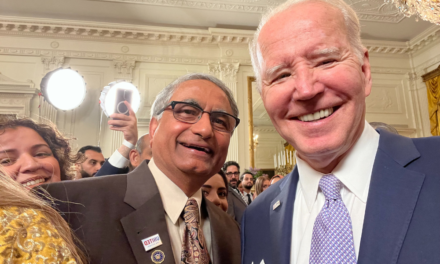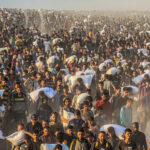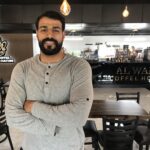© Photo
Mouna Photography for the Wisconsin Muslim Journal
The sign on the building says “Muslim Community Center,” but most people know it as the Dawah Center, part of the Masjid Ar-Rahman Mosque at 5125 North Teutonia Avenue in Milwaukee. Rebekah, the office manager for the food pantry that opens its doors here every Tuesday and Wednesday morning, sits with me in a quiet corner away from the flurry of activity.
Outside, men are unloading a 15-foot truck filled with large cartons of food. Brother Will Perry, recognizable in his olive green shalwar kameez and black kufi hat, is everywhere, directing the flow of food from truck to Center to recipients. Nasir, Redd, Johnny, JT, William, and Jose have been working since seven in the morning, loading the truck at the nearby Feeding America food bank on Fond du Lac Ave and bringing it here for unloading and distribution.
Feeding America receives donations of food from wholesalers, manufacturers, retailers and food distributors like Kroger, Wal-Mart, Meijer, Sendik’s, Festival Foods, and Con-Agra, and distributes it at a greatly reduced cost through partnerships with food pantries, hot meal programs, and shelters. This is unspoiled food, taken off grocery store shelves simply because it is past its sell-by date. Since the beginning of 2010, the Islamic Society of Milwaukee, which operates three Mosques and a full time school (not the Dawah Center), has contributed $1500 a month to Feeding America to subsidize most of the food distribution by the Dawah Center, according to Othman Atta, Director of the ISM. “We are incredibly grateful that the Dawah Center has taken on this tremendous responsibility for almost ten years now and is making such a palpable difference in the city. They are fulfilling the Muslim obligation of not going to sleep when your neighbor is hungry.”
At the Dawah Center, this wholesome food comes boxed with respect.
“Our doors are open to everybody,” Rebekah says.“People will call and say, ‘What zip code do you accept?’ We accept any zip code.” On Tuesdays, the method is the one I’m witnessing, where “we pack the boxes because we hand out meat.” On Wednesdays, there are the less perishable items (fruits, veggies, boxed items), and people bring their own bag or box. “It’s really whatever they [Feeding America] have available.” Almost all of those who receive food boxes are not Muslim.
The doors open at 10:30, when volunteer workers begin taking names and handing out tickets, first women, then men. Recipients request the food they need depending on family size. Many of the people who come for boxes of food are elderly, and often they are feeding and caring for grandchildren.
A woman from behind the table comes over to me and whispers in my ear that nine years ago, after a heart transplant, she was “a recipient.”Today, like most of the people in the room, she looks healthy, dressed in western clothing, a jean jacket and striped tee shirt. And, like the other volunteers, she is filled with gratitude. “Bless His name,” she says.
In a large room next door, where black tarps are spread out on the floor, dozens of volunteers are boxing the food brought from Feeding America. Bags of rolls, bread, even croissants go into boxes along with large bags of lettuce and other perishables. Today, there will be 100 boxes for the approximately 60 people who fill the waiting room. “The average number we serve is around 150 people each distribution day.” according to Rebekah.
Waiting outside in the sun are three grandmothers. Julieona, 68, in sunglasses, a scarf tied around her long braids, says, “You gotta make a choice between buying your medicine and buying food.” She has been a recipient since having a seizure nine years ago. Today she takes both seizure and blood pressure medicine. From a military family, Julieona wears tattooed on her wrist the electrocardiogram of her son’s last heartbeat.The other ladies are Sylvia, 76, and Lorene, 77, who live in the same senior apartment building. “We are all on fixed incomes. We really have a hard time.” Sylvia says.
As I walk back inside the center, a younger woman, in her 40s,with long braids,asks me, “Why she got on a gun?” nodding at Rebekah. Somehow, I hadn’t noticed that Rebekah is wearing what looks like a 9mm handgun in a shoulder holster.
“I carry a gun for personal safety,” Rebekah says. She mentions the attacks that have occurred at “religious centers around the country. . . not just mosques. The Dawah Center is part of multiple interfaith groups. In visiting these other places, [I noticed] they have guards, people watching the door.” Rebekah also believes that “being a woman in America today who’s covered, makes you more of a target.”
Rebekah has received training in the use of her gun, and she tells me that the brothers of the Dawah Center, through the Waukesha County Sheriff’s Department, have undergone training in what to do if your place of worship is attacked.
Though other regulars at the Dawah Center may notice the security precautions, most seem comfortable with it. Sister Ameena Dandridge wants me to talk to “some of our favorite people out there. Where’s Willie Mae?” Someone answers, “At home. ’Sleep.” But then Willie Mae appears, awake and present. “They [the Dawah Center workers and volunteers] are good people. They’re respectful, and they make sure you eat great,” Willie Mae says. “Brother [cares] that we have food, that the kids have food, clothes, shoes. They help you out.”
Willie Mae Washington is from Talulah, LA. “That’s the Delta – Been here since 1988. I’m up here with God and myself. The Dawah Center helps me very much, me and my grandkids. They help everyone everyday. Every time they get some things, they make sure the community are happy with it. . . Nobody should be hungry here. Nobody should be dehydrated here.”
Speaking in a quiet voice that seems to command the room, Brother Kalim gives a talk during the half hour between taking names and distributing food, while the individual boxes are being packed.“The subject, brothers and sisters, we like to reflect on today – is respect, proper respect,” Brother Kalim says. “When we say respect, each of us has an idea of what it is. You and I most likely respect ourselves. It’s why God created us. Everything God does is important. Therefore we are important.”
“Honor, dignity, respect.” That is also Brother Will’s creed. Momentarily on a break after most of the food brought from Feeding America has been boxed, he tells me a little about himself. A convert, he has based a life of service on his Muslim faith, nourished by reading the Koran and the Hadith (traditions of Prophet Muhammad). He joined the Milwaukee Fire Department in 1982 after a six-year stint in the Marine Corps and is now retired. He laughs at the busy scene all around him, where volunteer workers are boxing up the last of the food, and where he’s been working all morning. “This is my retirement plan.”
In addition to the food packed into the boxes, there are crates of frozen hamburgers and fresh cuts of grass-fed beef from a local grocer. Sister Ameena Dandridge, who, like Sister Rebekah, wears hijab, stands next to a couple of boxes filled with frozen hamburger and adds packages of meat to the women’s boxes, which are then carried out to the parking lot by male volunteers. The distribution is quick and orderly. To the recipients, much needed food plus respect. To the volunteers and workers of the Dawah Center, gratitude and joy.
